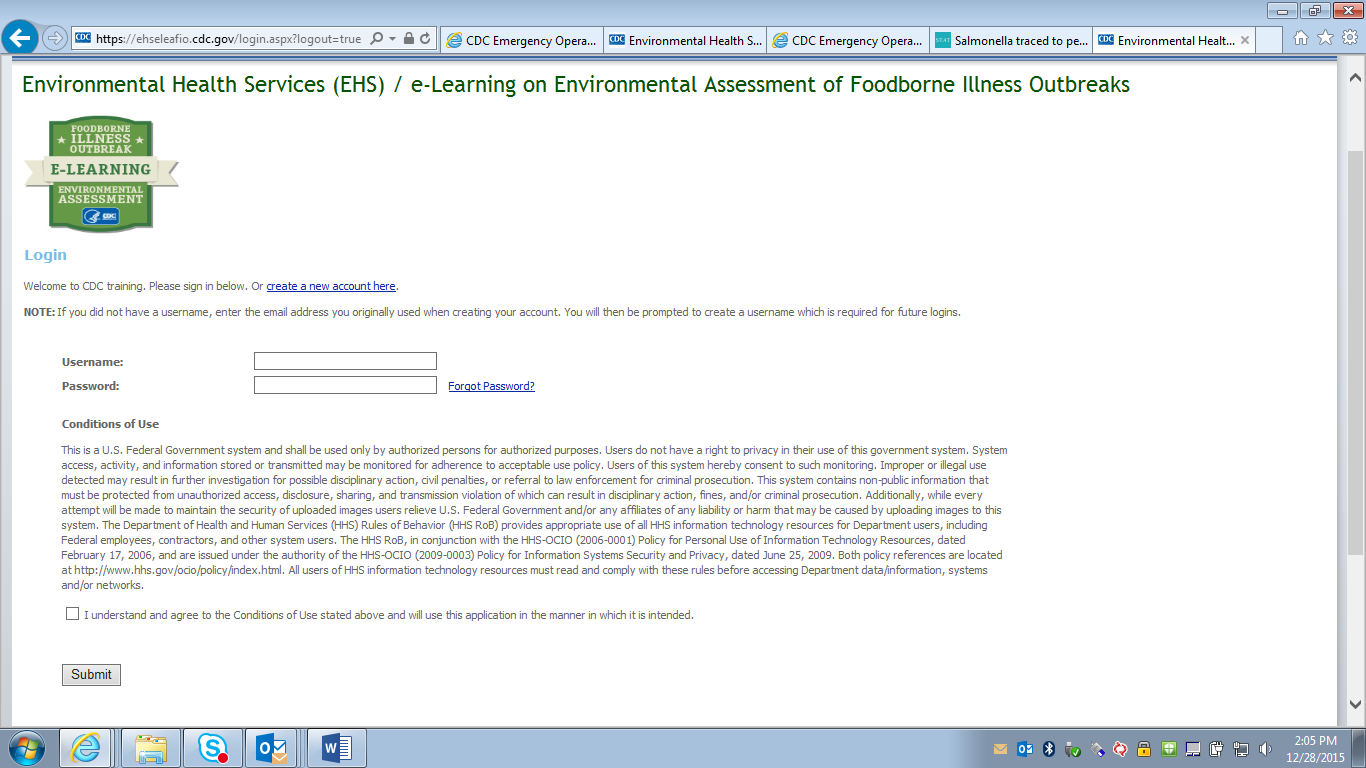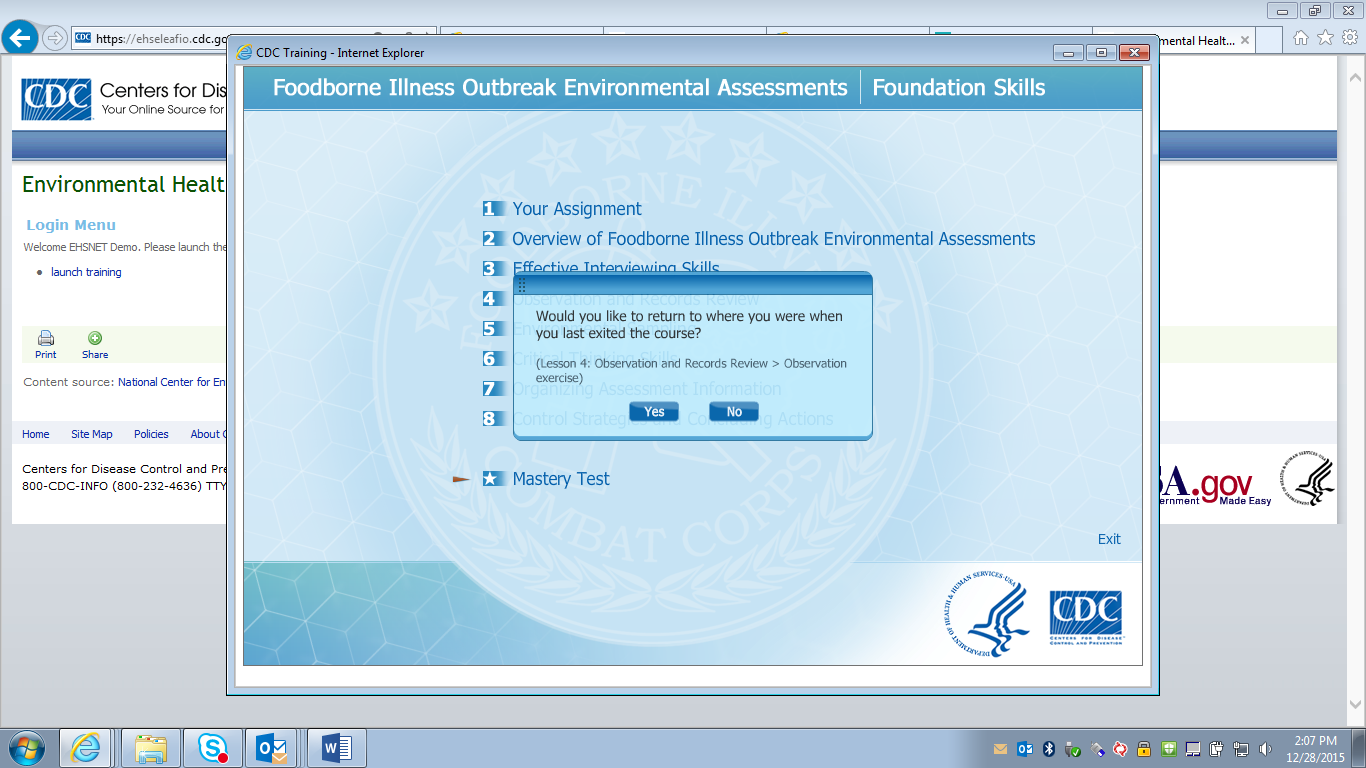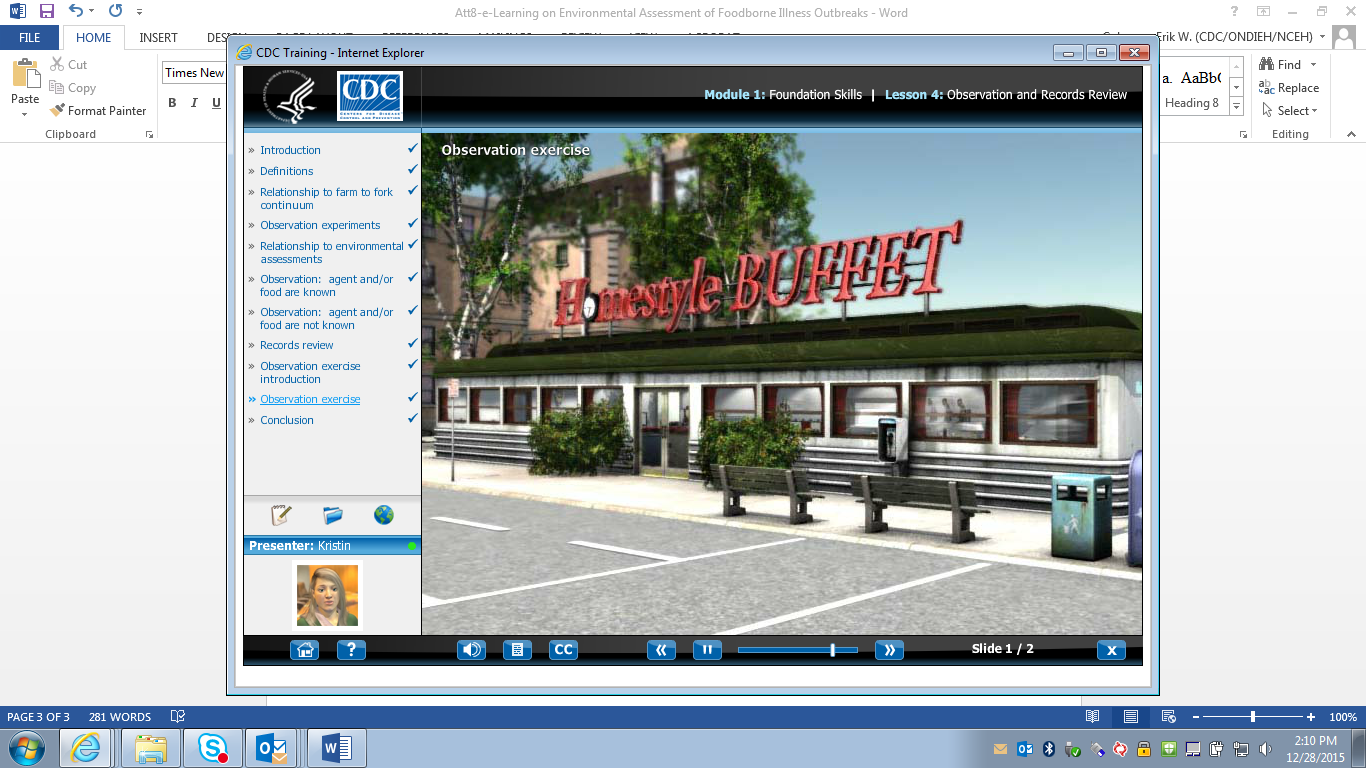NEARS e-Learning
National Environmental Assessment Reporting System (NEARS)
Att5-e-Lrnng Env Assmt Fdbrne Illnss Otbrks
NEARS e-Learning
OMB: 0920-0980
Attachment 5- NEARS e-Learning on Environmental Assessment of Foodborne Illness Outbreaks Screenshots
Form Approved OMB No.
0920-0980 Exp. Date
xx/xx/xxxx
CDC estimates the average public reporting burden for this
collection of information as 10 hours per response, including the
time for reviewing instructions, searching existing data sources,
gathering and maintaining the data needed, and completing and
reviewing the collection of information. An agency may not conduct
or sponsor, and a person is not required to respond to, a collection
of information unless it displays a currently valid OMB control
number. Send comments regarding this burden estimate or any other
aspect of this collection of information, including suggestions for
reducing this burden, to: CDC/ATSDR Information Collection Review
Office, MS D-74; 1600 Clifton Road NE, Atlanta, Ga. 30333; ATTN: PRA
(0920-0980)
Food safety program personnel participating in NEARS will be encouraged to complete this e-Learning course before participating in NEARS; however, the course can be taken independently of NEARS. This e-Learning course provides training on how to use a systems approach in foodborne illness outbreak environmental assessments. Participants acquire in-depth skills and knowledge to
Investigate foodborne illness outbreaks as a member of a larger outbreak response team,
Identify an outbreak’s environmental causes, and
Recommend appropriate control measures.
Register for the e-Learning course at https://ehseleafio.cdc.gov/
Before participants start the course, they take a pretest to assess current knowledge. After the pretest, participants can start the course on foodborne illness outbreak environmental assessment, which includes the following sections:
Your assignment
Overview of foodborne illness outbreak environmental assessments
Effective interviewing skills
Observation and record review
Sampling
Critical thinking skills
Organizing assessment information
Control strategies and concluding actions
The course is presented in the context of a simulated virtual environment where participants can interact and practice the skills being learned.






| File Type | application/vnd.openxmlformats-officedocument.wordprocessingml.document |
| Author | lgb |
| File Modified | 0000-00-00 |
| File Created | 2021-01-24 |
© 2026 OMB.report | Privacy Policy